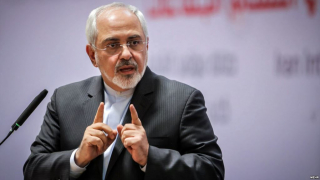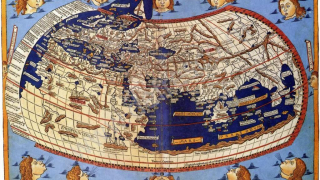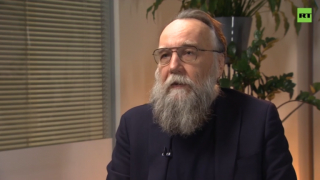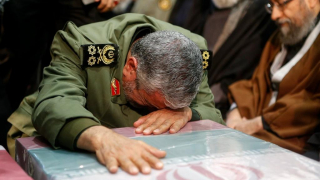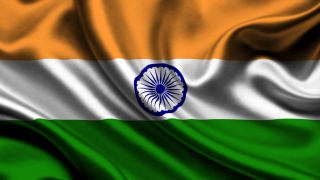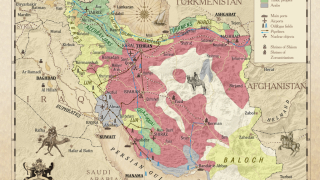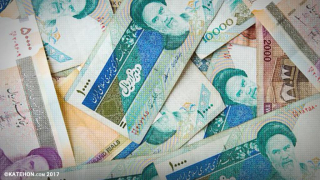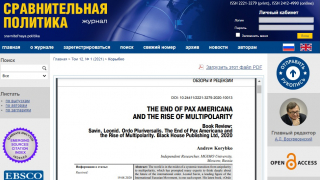Iran and Multipolarity
At the turn of the millennium, Irani’s President from 1997-2005, Mohammad Khatami, proposed the concept of dialogue of civilizations. Initially being a counter-thesis to Samuel Huntington’s work, The Clash of Civilizations, Khatami insisted on and argued for the need for discussion between different religions and cultures, especially during his address to the 53rd session of the UN General Assembly (1998-1999) when he officially declared 2001 to be the Year of Dialogue Among Civilizations. The peculiarity of Mohammad Khatami’s theory of “dialogue of civilizations” rests in that it offers a systematic, scholarly, and practically feasible and purposeful use of exchange between civilizations to overcome barriers of alienation between different players on the global political scene to prevent crisis situations in the world taking into account the modern level of technological and communication development and with an eye towards global problems which threaten the very existence of mankind.[1] Khatami said:
We should not forget that cultures and civilizations always have interaction and mutual influence. New abilities were formed due to their interaction. Non-dialogue paradigm leads to a deadlock, to overcome which we inevitably appeal to the dialogue approaches. Constructive indicators of dialogue certainly must not be limited only to the spheres of politics and culture. Not all constructive indicators of culture are only cultural ones; since economic, social, cultural and educational aspects participate in this formation. Therefore, promotion of dialogue of civilizations should be recognized as a multi-sided necessity.[2]
In 2001, however, a terrorist attack struck New York and the American neoconservatives subsequently triumphed in their insisting on the necessity of military intervention in Iraq and Afghanistan under the pretext of fighting terrorism and finding (non-existent) weapons of mass destruction. The harsh dualism put forth as an ultimatum by the George W. Bush Administration to the tune of “those who aren’t with us, are with the terrorists” buried any efforts at establishing such a dialogue of civilizations.
During the presidency of Khatami’s successor, Mahmoud Ahmadinejad, Iran became yet another pretext for the West’s contrived “concerns.” Meanwhile, on the other hand, Iran became an object of interest for all those forces resisting Washington-led unipolar globalization. High prices and demand for oil contributed to Iran’s economic development, although sanctions imposed by Western countries and later the UN hampered the Iranian economy. Despite this, Iran demonstrated political resilience to outside influence, remained loyal to its ideological principles, and affirmed its right to be an influential player in the region. In addition, Iran under Ahmadinejad began actively cooperating with those Latin American countries which adopted an anti-imperialist foreign policy course.
The fact that these countries’ leaderships, and first and foremost Venezuela, Ecuador, Nicaragua, and Bolivia adhered to socialist views did not hinder the establishment of an alliance which set for itself the goal of political multipolarity based on respect for the sovereignty of states and their peoples’ cultural traditions. Cooperation with Russia, China, and African countries was also amplified.
Moreover, similar views came to be shared by other senior politicians of the Islamic Republic of Iran. In May 2006, the Commander-in-Chief of the Islamic Revolutionary Guard Corps, General Yahya Rahim Safavi, stressed that “Today, taking into account countries such as Russia, China, India, an Iran, the world is moving in the direction of multipolarity contrary to the desire of the USA.”[3] Ahmadinejad continued Iran’s course towards multipolarity during his second presidential term as well. At the 65th session of the UN General Assembly in October 2010, Ahmadinejad said:
The inefficiency of capitalism and existing global governance and its structures has manifested itself for many years, and the majority of countries and peoples are in search of fundamental changes for the sake of justice in international relations…The world is in need of the logic of compassion, justice, and universal cooperation, not the logic of force, domination, unipolarity, war, and intimidation…The Iranian people and the majority of peoples and governments of the world are against the current, discriminatory global governance. The inhumane nature of this governance has brought it to a standstill and requires radical revision. Universal cooperation, pure thoughts, and divine and humane governance are needed to remedy the situation in the world and to transition to peace and prosperity.[4]
The Supreme Leader of Iran, Ayatollah Khamenei, also stressed the pursuit of multipolarity. During his speech at the 16th summit of the Non-Aligned Movement in Tehran in August 2012, Khamenei pointed out the need to reform the UN, drew attention to the West’s unilateral imposition of its programs undermining the principles of democracy, the destructive work of monopolized mass media, and problems of weapons of mass destruction. Khamenei proposed the doctrine of a “Middle East without nuclear weapons” by which, of course, he meant Israel as an outcast in this issue, and highlighted the need to improve “political productivity in global governance.”[5] Without a doubt, such a venue as the Non-Aligned Movement’s summit is not only for political reports advising the need for high morality and justice, but is a platform for criticizing neo-imperialism. It is a powerful pooling of leaders and senior officials of states from all continents to meet and take advantage of a decent opportunity to reach agreements, discuss the prospects of joint projects, and reduce possible friction in diplomatic relations.[6] Iran’s role in this regard is very indicative.
If Iran de facto is and has been before a geopolitical center, then the changing international situation has opened the possibility for it to transform its status and rise to the level of a geopolitical pole. If Iran is approached not only as a sovereign nation-state, but as a center of Shiite Islam, then we undoubtedly see that Iran’s influence in a number of countries with Shiite populations makes it a geopolitical subject of a different level and significance. Lebanon, Syria, Iraq, Yemen, and Palestine are states which depend on support from Iran through various mechanisms.
The Iranian international relations expert Behzad Khoshandam posits that 2016 was a turning point for Iran in regards to choosing its international course, which was finally confirmed to be that of multipolarity. This is due to several interconnected factors: (1) the signing of the nuclear deal with six countries (a manifestation of the logic of Iran’s strategic patience in political, trade, economic, and other interests); (2) rapprochement with Russia; (3) Trump’s victory in the US presidential elections; (4) understanding the hostile intentions of the numerous countries conducting proxy wars against Iran (Qatar, Saudi Arabia, Israel); (5) and the overall serious turn towards Eurasia.[7] To this we can add the strategic agreement with China announced in January 2016 which includes Beijing actively supporting Iran in acquiring full membership in the SCO.[8]
Indeed, in the opinion of Iranian scholars, the country’s national interests are best protected in none other than the multipolar paradigm of global politics. Mohammad Mehdi Mazaheri from Tehran University believes that only in a multipolar international system can regional cooperation and balanced relations with all powerful states help countries achieve their national interests.[9] The Iranian political scientist Massoud Mousavi Shafaei from Tarbiat Modares University has proposed that Iran take advantage of the fluidity of the international system and the emergence of new conditions for active operations in different regional environments. Insofar as Iran is located between the Middle East and Central Asia, it indeed does have a choice. The Middle East is submerged in chaos, ethnic conflicts, wars, and terror, and this crisis will likely continue for an indefinite period of time. In these circumstances, the restoration of order in the region under the leadership of a single hegemonic power or even under the pressure of large powers is seen as practically impossible.[10] Given that the US instrumentalizes most Arab countries to contain Iran’s geopolitical ambitions, this thesis is justified. Washington simply will not allow Iran to be more actively engaged in the region even if Iranian intentions are altogether benevolent and noble. Therefore, in Massoud Mousavi Shafaei’s opinion, Iran must reorient itself and its geo-economic logic towards Central Asia and Southeast Asia. However, this does not mean an end to Iranian presence in the Middle East necessary to defend its vital national security interests.
The opinion has also been expressed that Russia, Iran, and China “all feel that [a] multipolar world is the only condition for future development of our planet and its inhabitants. They have experienced again and again that unilateral dictates emanating from US, instead of solving problems, generates more and more of them. So it is obviously in their interests, to get united on the issue of multi-polarity, and insist – through various institutions like US, or press, or even new military alliances – that the business as usual – is not going to be accepted.”[11]
Iran understands that joining the multipolar club inevitably means pressure from the West. Thus, Tehran can expect new challenges, as can the other architects of the multipolar world order. In this vein Tehran University Professor Jahangir Karami has noted that although Russia can effectively restrict the US’ unilateral approach through the UN, NATO expansion challenges Russia’s efforts, as was the case with the crises provoked in Ukraine and Syria aimed directly against Moscow.[12]
Nevertheless, Iran has a long history of withstanding Western hegemony and other forces from the first contacts with the Portuguese in the early 16th century to the seizure of the US Embassy during the Islamic Revolution of 1979. Indeed, opposing US sanctions and working to develop their own economic approaches and conduct in international affairs are characteristic of Iran’s course towards multipolarity.
[1] Мелихов И.А. М. Хатами: межцивилизационный диалог и мусульманское сообщество/ «Дипломатический вестник», серия «Дипломатия, наука и общественность». № 9. 2001.
[2] Seyyed Mohammad Khatami. Dialogue among Civilizations. High-Level Conference. Eurasia in the XXIst Century: Dialogue of Cultures, or Conflict of Civilizations? Issyk-Kul, Kyrgyzstan, 10 and 11 June 2004. Paris, 2005.
[3] Иран и Российская Федерация: Россия, Китай, Индия и Иран – линия мощной силы, 10 мая 2006
[4] Выступление президента Ирана на 65-й сессии Генеральной Ассамблеи ООН, 04 октября 2010
[5] Выступление аятоллы Хаменеи на саммите Движения неприсоединения.// Геополитика. 31.08.12 http://www.geopolitica.ru/Articles/1483/
[6] Савин Л.В. Иран, Движение неприсоединения и многополярность. Геополитика.ру, 17.09.2012 https://www.geopolitica.ru/article/dvizhenie-neprisoedineniya-iran-i-mnogopolyarnost
[7] Behzad Khoshandam, Iran’s Foreign Policy in 2016, Iran Review, DECEMBER 28, 2016
http://www.iranreview.org/content/Documents/Iran-s-Foreign-Policy-in-2016.htm
[8] Iran, China Announce Roadmap for Strategic Partnership, Farsnews, Jan 23, 2016
[9] Mohammad Mehdi Mazaheri, Russia Bracing for Multipolar International System, Iran Review, September 21, 2015
http://www.iranreview.org/content/Documents/Russia-Bracing-for-Multipolar-International-System.htm
[10] Massoud Mousavi Shafaei, Iran’s Foreign Policy Needs Paradigm Change: Transition from Middle Eastern Terror to Geo-economics of Asian Hope, Iran Review, JANUARY 31, 2017
[11] Prof. Golstein: 'Russia, Iran, China Feel Multi-Polar World is Only Condition for Future Development', Jul 17, 2016
[12] Jahangir Karami, Russia, Crises in Syria and Ukraine, and the Future of the International System, Iran Review, APRIL 15, 2014
___________
Translated from Russian by Jafe Arnold.



